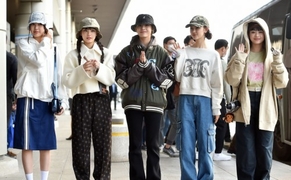By AsiaToday reporter Moon Noo-ri
Since the establishment of diplomatic ties in 1992, both Korea and China have experienced growth by strengthening economic exchanges in trade, investment and tourism. However, trade and investment between two countries is expected to shrink considerably. Considering their economic slowdown, political and economic conflicts, and changes in China's industrial structure, Seoul-Beijing economic relations are in the "historical inflection point," the biggest-ever change since the establishment of diplomatic ties.
According to a report titled "What has changed since establishment of Korea-China diplomatic relations?" by Hyundai Economic Research Institute (KIEP) on Sunday, Korea's trade dependence on China has increased rapidly as exports of parts to China have increased significantly. South Korea's trade dependence with China was 4.0% in 1992, but reached 22.0% in the first half of the year. On the other hand, China's dependence on Korea trade has been at about 7% since 2000.
The Korea-China technology trade volume has grown more than tenfold, rising from $190 million in 2001 to $2,630 million in 2015. In particular, Korea has been in chronic deficit in the technology trade with the US and Japan, but has been making the largest-ever trade surplus with China.
From 2009-2016, China's foreign direct investment in manufacturing sector in Korea accounted 34.1% ($21.6 billion). China accounted for 15.0% of all foreign investment in real estate and leasing services in the same period. China's share in the fields of culture and entertainment (17.1%) and finance and insurance (8.0%) is growing as well.
In terms of industrial competitiveness, Korea's trade specialization index for the eight major export industries is improving continuously from 0.02 in 1995 to 0.18 in 2016.China is also improving rapidly from 0.19 to 0.12 in the same period, but is lagging behind Korea. However, export competition between Korea and China is intensifying as China continues to announce major policies such as the Industrial Restructuring, Made in China 2025, and Internet Plus, and make efforts to upgrade its R&D capabilities.
However, the analysis shows that Korea-China trade and investment that has grown rapidly over the last 25 years will slow down. According to a report on the 25th anniversary of Korea-Trade diplomatic ties released on Sunday by the Korea International Trade Association (KITA), Korea's merchandise trade with China is expected to be at an annual average rate of 5.7% over the next five years (2017-2022), much less than the average growth rate of 7.% over the last ten years. Their bilateral trade volume soared over 33 times in the past 25 years, from $6.4 billion in 1992 to $211.4 billion in 2016. It is nearly eight times higher than global trade volume, which has increased 4.2 times over the same period.
The report forecasts that the trade volume between the two countries will grow at a CAGR of around 10% in the years to come, and will not reach the past annual growth rate of 13.9% over the last 16 years.
The report also predicted that investment and human exchange between the two would also slow down. The Korea-China investment volume grew from $200 million in 1992 to $6,000 million in 2016, and human exchanges also increased significantly from about 700,000 in 1992 to 1,042,000 in 2015.
However, Korea' investment in China and China's investment in Korea in the first half of this year has decreased by 46.3% and 32.3%, respectively, due to the recent THAAD conflict. In terms of personal exchanges, the number of Chinese living in Korea in the first half was 2.25 million, 41% down compared to the same period of the previous year. "The number of Chinese people visiting Korea has decreased in the first half of this year by 41.0% compared to the same period of last year, showing visible signs of negative impact," the report explained.
In addition, the structure of Korea's export to China is expected to change drastically. Trade and investment between the two has been driven by China's investment-led growth policies, mostly focused on processing trade, but it seems that qualitative changes are inevitable due to China's changing industrial structure and economic growth trend.
Meanwhile, the report suggested that Korean companies should change their strategies to enter the Chinese market as the trade between Korea and China is having a turning point.
#Seoul-Beijing #diplomatic ties #25th anniversary #trade #exchane
Copyright by Asiatoday
Most Read
-
1
-
2
-
3
-
4
-
5
-
6
-
7





















